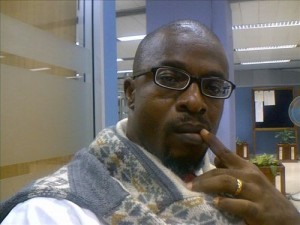Over the last couple of weeks, a succession (profusion?) of, dare I say, “important” events in this country lead to only one conclusion: that everything (at least until 2015) has become “political”! For a while, our gauges of value, our prisms of introspection, the choices we make, the paths we refuse to take, all these will be partisan. There are three problems with this development. Firstly, given that we are a good 12 months ahead of the election cycle, these events underline the main failing of our democratic experiments, thus far. A high-stakes, winner takes all model is ruinous to a commonweal whose clear need is for its development concerns to be discussed and addressed by the smallest, lowest, or least centralised authority capable of best dealing with these issues.
It matters therefore that the divisions and conversations in (and of) the new politics are not addressed to questions of empowerment and choice. Instead, they reprise the timeworn concerns over access to and (ab)use of our shared resources. This is bad enough. Worse (and this is the second difficulty with the current times), is that the “new” politics then threatens a huge waste of already significantly depleted resources as the different interest groups make for the entrance to power. It would have been of interest speculating on the nature and degree of casualties that will result from the ensuing stampede, were we not assured beforehand that much of the damage would be lower down the political food chain.
Nonetheless, the third problem with our current state is of a different order. Over the last three years, the Central Bank of Nigeria (CBN) has been the economy’s mainstay. As governments across the three tiers loosed their purse strings, monetary policy became less accommodating. Consequently, an unconscionably lax fiscal environment has failed to feed through into higher (or more volatile) domestic prices (including the naira’s exchange rate). There have been huge costs associated with this (especially the CBN’s outlays on liquidity management). Then, this is the one lesson that we need to learn as a people: that there are costs associated with the options we face; and that our decision-making must square these costs against the benefits advertised for each option.
Add its quasi-fiscal activities (all those sector-specific intervention funds) to the CBN’s monetary policy responses over this period, and it is difficult to quarrel with one who would rather that we reversed the status quo. In other words, at this stage of the nation’s development, one who argues that “everything should be about the economy”! Given the CBN’s role in holding up the latter, put differently, this sentiment is basically a bias for treating matters affecting the apex bank with both urgency and circumspection.
Significantly, much could be done on this front. Or, better still, not much has been done. And the transition to “politics” threatens to worsen this position. We have made the passing nod to issues associated with the expiration, next year, of the CBN governor’s tenure. He has said that he intends to quit the post by year-end. However, September 23 and 24, the Monetary Policy Committee (MPC) of the CBN meets for the penultimate time: last meeting this year is scheduled for November 18 and 19.
Other shortcomings it may have had, but in the last three years, the MPC attended to its responsibility for attaining price stability and supporting the economic policy of the Federal Government with aplomb. Now, the tenure of key members of the committee ends in December. Are these terms going to be renewed? Are the concerned members going to be replaced? By whom? And when does (or should) this process start?
The problem with everything going political is not so much that a process that should ordinarily end up producing a technocratic team ends up with placemen ensconced at the CBN. It is instead, and here, much attention should be paid to the incumbent administration’s record in office, that nothing is done, and as a friend suggested, at the appointed time, the next most senior person in the CBN will be invited to act as governor.
Are we also permitted to have persons act as MPC members?

